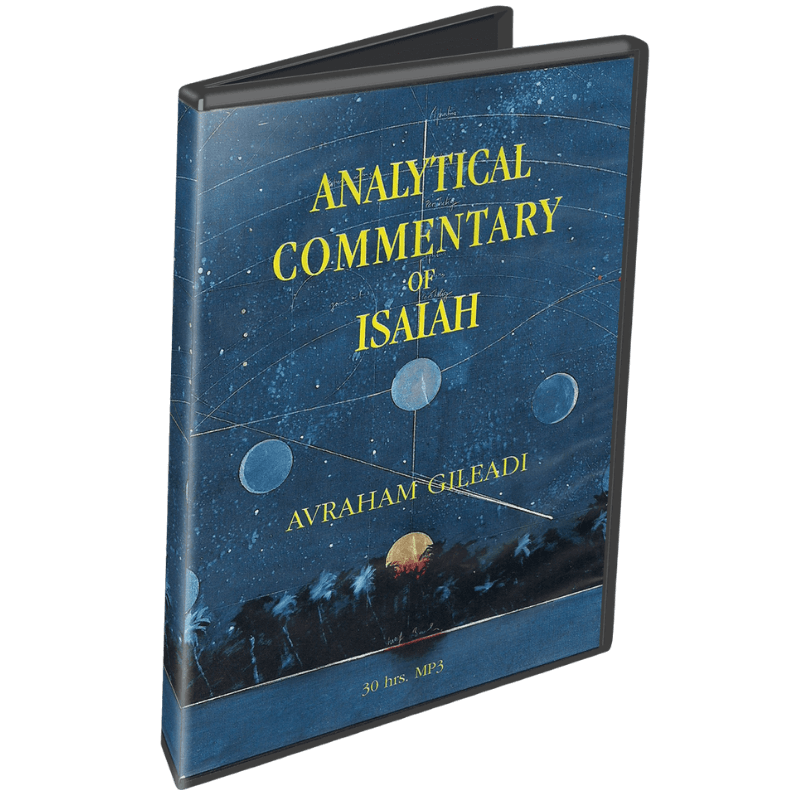God’s Endtime Servant Initiates the Restoration of All Things
The Elias whom Jesus prophesied would “come first and restore all things”—immediately before Jesus’ second coming—fulfills the role of forerunner in the pattern of John the Baptist (Matthew 17:11–13; cf. Acts 3:21). An exception is that his mission is to an Israel scattered worldwide.
Isaiah prophesies the same restoration of all things and vests this role in God’s endtime servant, who acts as forerunner to Jehovah’s coming to reign in glory on the earth. In a time when little or no justice prevails on earth, God calls him to restore justice and exemplify God’s righteousness:
Isaiah 42:1
My servant whom I sustain,
my chosen one in whom I delight,
him I have endowed with my Spirit;
he will dispense justice to the Gentiles.
Isaiah 41:2
Who has raised up Righteousness from the east,
calling him to [the place of] his foot?
Who has delivered nations to him,
toppled their rulers?
Although God empowers him over the nations of the world, he first undergoes a descent phase of suffering on behalf of God’s people as he pays the price of their physical deliverance under the terms of the Davidic Covenant. He gains prominence when God reverses his circumstances:
Isaiah 52:11–15
My servant, being astute, shall be highly exalted;
he shall become exceedingly eminent:
just as he appalled many—
his appearance was marred beyond human likeness,
his semblance unlike that of men—
So shall he yet astound many nations,
kings shutting their mouths at him—
what was not told them, they shall see;
what they had not heard, they shall consider.
Isaiah 57:18–19
I have seen his conduct and I will heal him;
I will guide him and amply console him
and those who mourn for him,
who partake of the fruit of the lips:
Peace, wellbeing, to those far off
and to those who are near,
says Jehovah who heals him.
During his ascent phase—after he “pours out his soul unto death” and God accepts his sacrifice (Isaiah 53:11–12)—God sustains his servant in his role of restoring his people. God’s servant releases Israel’s captives, reconstitutes Israel’s tribes, and assigns them lands of inheritance:
Isaiah 49:6
He said: It is too small a thing
for you to be my servant
to raise up the tribes of Jacob
and to restore those preserved of Israel.
I will also appoint you to be a light to the Gentiles,
that my salvation may be to the end of the earth.
Isaiah 49:8–10
I have created you and appointed you
to be a covenant of the people,
to restore the Land and reapportion the desolate estates,
to say to the captives, Come forth!
and to those in darkness, Show yourselves!
They shall feed along the way
and find pasture on all barren heights;
they shall not hunger or thirst,
nor be smitten by the heatwave or the sun:
he who has mercy on them will guide them;
he will lead them by springs of water.
The servant’s work of restoring endtime Israel proceeds as he assumes the roles of many biblical heroes. It is in his Moses and Cyrus personas that God’s servant releases Israel’s captives, leads a new exodus out of Babylon to Zion, and oversees the rebuilding of Jerusalem and its temple:
Isaiah 51:9–11
Awake, arise; clothe yourself with power,
O arm of Jehovah!
Bestir yourself, as in ancient times,
as in generations of old.
Was it not you who carved up Rahab,
you who slew the dragon?
Was it not you who dried up the Sea,
the waters of the mighty deep,
and made of ocean depths a way
by which the redeemed might pass?
Let the ransomed of Jehovah return!
Let them come singing to Zion,
their heads crowned with everlasting joy;
let them obtain joy and gladness,
and sorrow and sighing flee away.
Isaiah 44:26–28
Who fulfills the word of his servant,
accomplishes the aims of his messengers,
who says of Jerusalem, It shall be reinhabited,
and of the cities of Judah, They shall be rebuilt,
their ruins I will restore,
who says to the deep, Become dry;
I am drying up your currents,
who says of Cyrus, He is my shepherd;
he will do whatever I will.
He will say of Jerusalem that it must be rebuilt,
its temple foundations relaid.

Recommended Reading and Listening:
Avraham Gileadi, The Literary Message of Isaiah. A ground-breaking literary approach at the cutting edge of all Isaiah studies that analyzes key literary features of the Book of Isaiah for Judeo-Christian readers. Hebraeus Press, 2012: 296 pages. Softcover $22.95; E-Book $9.95.

Recommended Reading and Listening:
Avraham Gileadi, Analytical Commentary of the Book of Isaiah. The best single audio companion available anywhere for Judeo-Christian listeners desiring to learn Isaiah’s prophetic message for our day. Hebraeus Press, 2006. 30-hour MP3 download $14.95.

